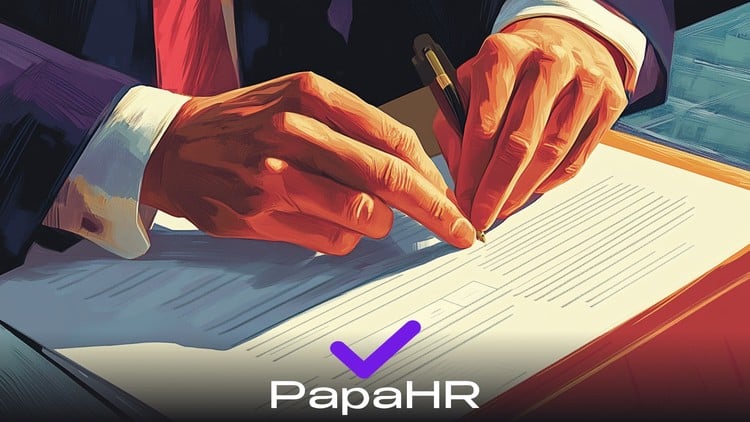
HR Budgeting | Workforce Planning | HR ROI | Cost Forecasting | Compensation Strategy | HR Software | L&D Budgeting
⏱️ Length: 2.1 total hours
⭐ 4.65/5 rating
👥 7,119 students
🔄 October 2025 update
Add-On Information:
Note➛ Make sure your 𝐔𝐝𝐞𝐦𝐲 cart has only this course you're going to enroll it now, Remove all other courses from the 𝐔𝐝𝐞𝐦𝐲 cart before Enrolling!
- Course Overview
- Embark on a transformative journey to become a strategic architect of your organization’s human capital investment. This intensive, 2.1-hour program, boasting a stellar 4.65/5 rating from over 7,119 students and updated in October 2025, equips HR professionals with the essential skills to navigate the complex landscape of HR budgeting with confidence and precision. Move beyond mere expense tracking to actively shaping financial strategies that drive organizational success.
- Discover the intricate interplay between HR functions and overarching business objectives. This course demystifies the process of translating HR initiatives into tangible financial plans, ensuring that every dollar invested in your workforce yields maximum strategic advantage. You’ll learn to think like a financial leader, identifying opportunities to leverage HR’s financial footprint for competitive gain.
- Gain a comprehensive understanding of the critical financial levers within HR, encompassing the entire employee lifecycle from acquisition to development. This holistic approach ensures no cost center is overlooked, empowering you to create a robust and all-encompassing financial roadmap for your HR department.
- Master the art of demonstrating the quantifiable value of HR programs. This course emphasizes the crucial connection between HR expenditures and demonstrable business outcomes, equipping you with the language and tools to articulate HR’s impact in financial terms that resonate with senior leadership.
- Develop the acumen to leverage external insights and internal data to substantiate every budgetary decision. You’ll learn to wield industry benchmarks and performance metrics as powerful tools for justification, transforming subjective requests into data-driven imperatives.
- Acquire practical, actionable frameworks for constructing comprehensive HR budgets. Through the use of expertly designed, ready-to-deploy templates, you’ll streamline the budgeting process, ensuring accuracy, completeness, and strategic alignment from the outset.
- Cultivate a deep understanding of how to measure the return on investment (ROI) for various HR initiatives. This course provides the analytical skills necessary to dissect the cost-effectiveness of your programs and quantify the financial gains derived from strategic HR investments.
- Hone your ability to project future HR financial needs with a keen eye for accuracy and foresight. You’ll learn sophisticated forecasting techniques to anticipate resource requirements and optimize allocation for maximum operational efficiency and strategic impact.
- Develop compelling presentation and advocacy skills to effectively champion your HR budget proposals. Learn to communicate complex financial data in a clear, persuasive manner that builds confidence and secures buy-in from executive and finance stakeholders.
- Design adaptive and resilient budgeting models that can gracefully accommodate evolving business landscapes and unforeseen challenges. This course moves beyond static planning to foster dynamic financial strategies that ensure agility and sustained performance.
- Equip yourself with the knowledge to proactively identify and circumvent common pitfalls in HR budget planning. Learn strategies to minimize waste and maximize the impact of every allocated resource, leading to significant cost efficiencies and improved financial stewardship.
- Requirements / Prerequisites
- A foundational understanding of human resources principles and practices is beneficial but not strictly required.
- Familiarity with basic spreadsheet software (e.g., Microsoft Excel, Google Sheets) will enhance the learning experience.
- An openness to financial concepts and a willingness to engage with quantitative data are essential for success.
- Professionals aiming to elevate their strategic impact within HR departments or transition into more financially-oriented HR roles.
- Skills Covered / Tools Used
- Strategic Financial Planning for HR initiatives.
- Cost-Benefit Analysis applied to workforce investments.
- Scenario Modeling for budget resilience.
- Data Interpretation from HR metrics and industry benchmarks.
- Presentation & Negotiation of financial proposals.
- Spreadsheet Proficiency for budget creation and analysis.
- ROI Calculation for HR programs.
- Forecasting Techniques for workforce-related expenses.
- Resource Optimization Strategies within HR.
- Risk Mitigation in budget planning.
- Workforce Planning Integration with financial strategies.
- Compensation & Benefits Financial Modeling.
- HR Technology Investment Justification.
- Learning & Development Financial Management.
- Benefits / Outcomes
- Transform from an HR administrator to a strategic financial partner within your organization.
- Gain the confidence to present and defend HR budgets with data-backed conviction.
- Unlock opportunities for career advancement into leadership roles with greater financial oversight.
- Develop a keen ability to identify cost-saving opportunities without compromising workforce effectiveness.
- Become indispensable to your organization by demonstrating clear, quantifiable HR contributions to the bottom line.
- Master the art of aligning HR expenditure with evolving business priorities, ensuring maximum strategic impact.
- Acquire the skills to proactively manage and optimize HR costs, fostering a culture of financial accountability.
- Enhance your credibility and influence with finance departments and executive leadership.
- Build more robust, adaptable, and defensible HR budgets that support long-term organizational growth.
- Develop a comprehensive understanding of HR’s financial ecosystem and its role in overall business success.
- PROS
- Highly practical and immediately applicable skills.
- Excellent student ratings and high enrollment numbers suggest strong value.
- Recent update indicates current and relevant content.
- Focus on ROI and justification provides strong career advantages.
- Comprehensive coverage of key HR budgeting areas.
- CONS
- Primarily focused on the ‘how-to’ of budgeting, may require supplementary courses for deep dives into specific HR functions (e.g., complex benefits administration).
Learning Tracks: English,Business,Human Resources
Found It Free? Share It Fast!